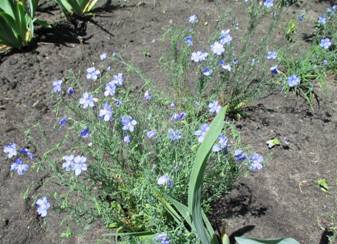
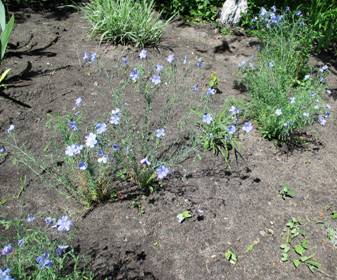
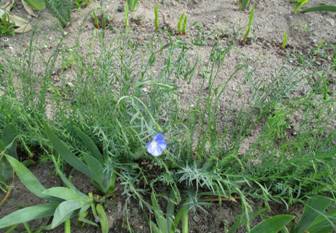
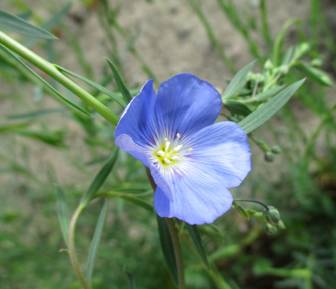
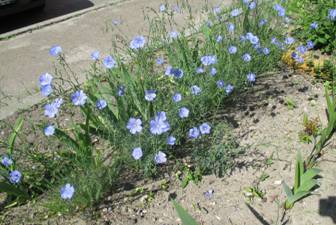
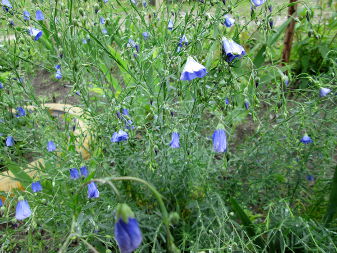
Flax (Linum), fam. Linaceae.
Widely cultivated plant, though several tens of its wild species also exist. Non of the latter grow in Kyiv, so we can only see flax as ornamental, in the garden beds, blooming in May-June. The seeds are sold in the markets as a food product, sprout easily and may be grown into blooming plants, though maybe not as bright.
Cultivated flax is divided into two groups – long-stem varieties, not very branched, for bast fiber production; and low linseed (oil) varieties, more branched, with plenty of flowers, for seeds production.
Flaxseeds and the products made from them are known for their medicinal and culinary values. Care should be taken with them: the oil extracted from the seeds, and even the whole seeds themselves spoil quickly in warmth and light, going rancid and oxidized. It is not always notable from taste, but consumption of such overdue oil drastically increases the concentration of free radicals, i.e. the substances that promote aging and other dangerous effects in the body. So, it is best to never heat flaxseed oil or whole seeds, and to keep them in a fridge or even freezer. Another feature is the content of cyanogenic glycosides in the seeds, similar to bitter almonds, which are capable of releasing hydrocyanic acid. This is the reason why flaxseeds are almost never eaten by rats or other pests. Sprouting would not help to remove cyanides but may even increase the content of these substances.
Despite these two drawbacks, moderate consumption of flaxseeds is usually beneficial for health. The seeds are rich omega-3 fatty acids (linolenic), which is essential in the dosage of 1-2 grams per day. Moreover, flaxseeds contain complete protein, vitamin B1, minerals, and mucus having mild laxative and soothing effect. A serving of seeds can be easily ground in common coffee grinder and then added into porridge, soup, etc., but should be eaten soon after that and not stored for long time. It is recommended as part of a diet against hypertension, elevated cholesterol, digestive tract inflammations, some hormonal disorders, giardiasis and other parasite invasions.